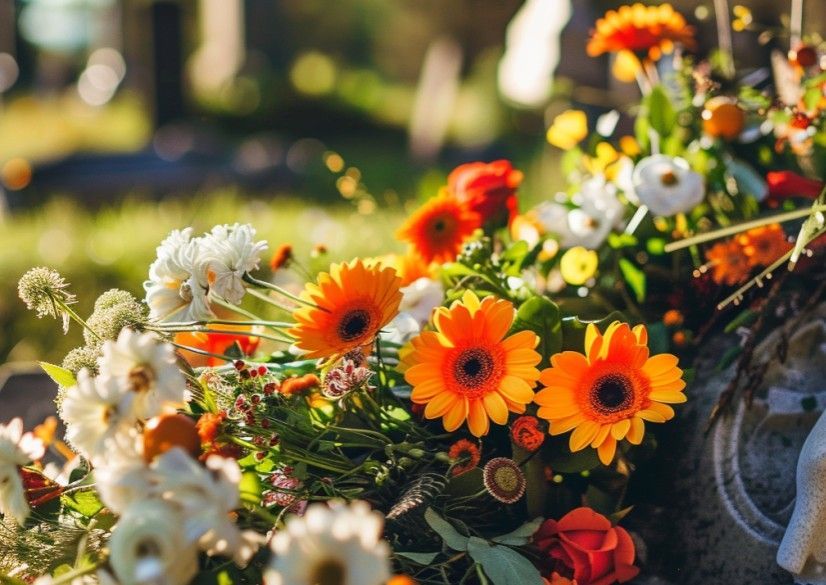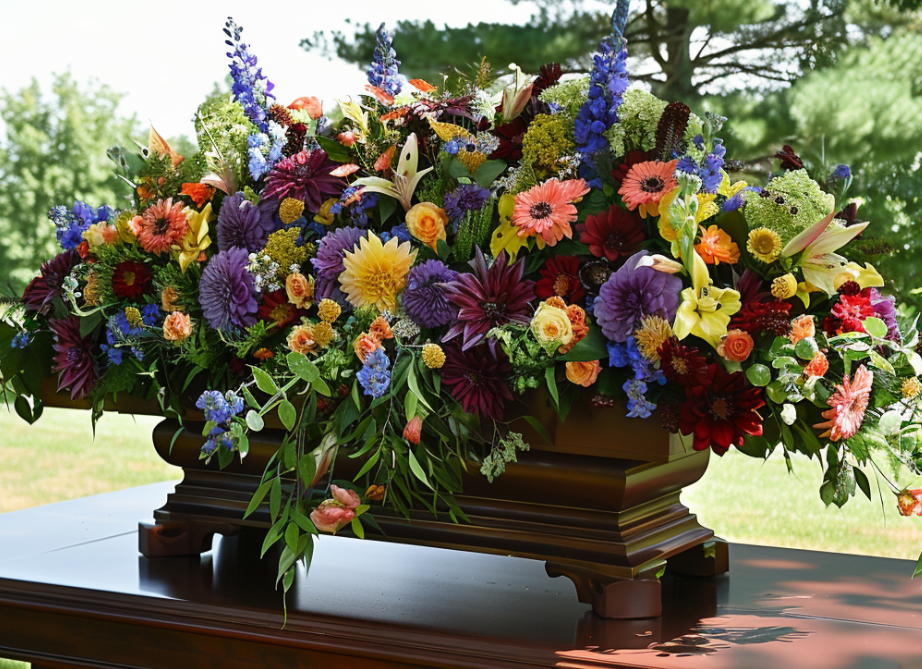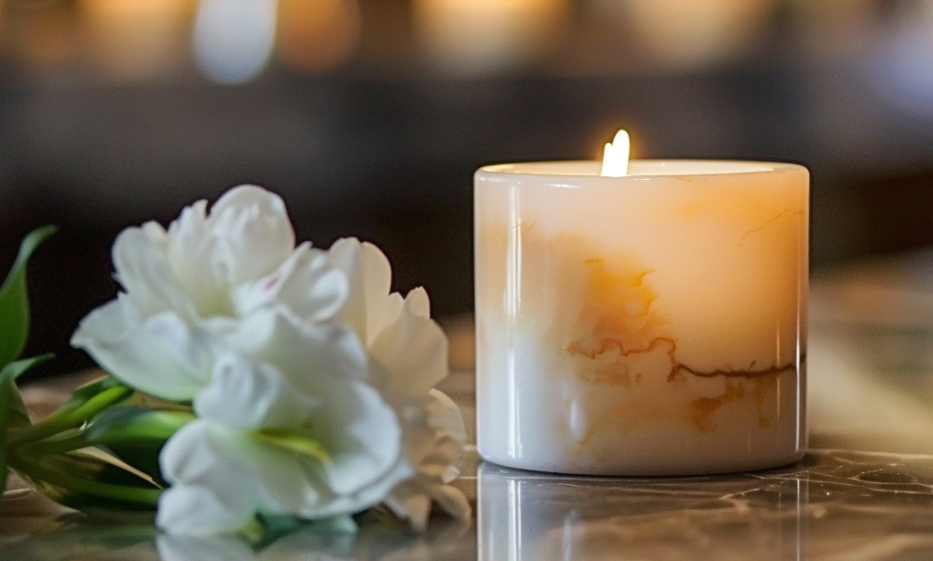7 Things That Happen When You Die
Schilling Funeral Home Admin • January 30, 2023
Many people don’t know much about death, funerals, and cremation services in Fulton, IL. Are you wondering what happens when you die?
Here is information about the body as it goes through the final stages of life and onto the next.
- Death – The first thing that happens after a death is the body stops working. There are many ways the body can stop working, but it often includes loss of interest in eating a drinking, slowing of breath, and the eventual shut down of all the organs. Once the brain begins to shut down, the body may make involuntary movements and, when death has occurred, the bowels and bladder may evacuate.
- Medical Professional Review – A medical professional will always check a body for signs of life before making a death pronouncement. These signs of life include pulse, breath, reflexes, and pupil dilation. If there are no signs of life, they will pronounce death.
- Death Certificate – The local government or state will officially record the death and create the death certificate. The death certificate is completed by the doctor, certified by the state, and passed along to the next of kin.
- Burial or Cremation – Depending on the deceased’s final wishes, the body will either be buried or cremated. After the cremation, the remains can be scattered , buried, placed in an urn, or a manner of other final dispositions.
- Decomposition – Decomposition begins a few minutes after death with a process called autolysis, which is when enzymes destroy the cells and tissues in the body. The brain is usually the first organ to begin autolysis. After about 25 minutes, the body will enter pallor mortis, which is when it pales from lack of blood flow. Livor mortis, or the blood vessels collapsing and pooling, happens about an hour or two after death. Then the body moves into algor mortis, or cooling. It cools about 2 degrees every hour until it reaches the temperature of the air around it. Finally, the body enters rigor mortis, which is when it stiffens from muscle chemical changes.
- Notification of the Family – After death pronouncement, the family will be notified of the death by another loved one or a doctor, nurse, coroner, or police officer. After receiving word of a death, its best for the bereaved begin preparing for the funeral or cremation right away. They should call the funeral home or cremation provider as they will help guide the bereaved through next steps.
- Service Planning – The deceased’s next of kin will make arrangements for a funeral service or memorial service. Oftentimes the deceased will have left instructions for such a service. In these cases, the next of skin should follow the instructions. If the deceased did not leave instructions, the funeral director or cremation provider will help guide the deceased through the planning process.
Do you want to learn more about what happens after a death or Fulton, IL cremation services ? Call or visit us today for more information about what we can do for you.

Grief has a way of weaving itself into everyday life, often arriving quietly and lingering longer than expected. For families searching for guidance from funeral homes Morrison, IL , questions often extend beyond arrangements and into how to cope once daily routines resume. While grief looks different for everyone, simple daily practices can provide structure, comfort, and moments of calm during an otherwise overwhelming time. These small, intentional habits can help create emotional steadiness as healing begins. At Schilling Funeral Home & Cremation, we have walked alongside families long after services conclude, and we understand that grief does not follow a timeline. Our conversations often focus on gentle, realistic ways to care for emotional well-being. Coping does not mean moving on. Instead, it means learning how to carry loss with compassion for yourself. Begin Each Day with Gentle Intention Mornings can feel especially heavy when grief is present. Starting the day with intention helps set an emotional tone that feels manageable. This might mean taking a few quiet moments before the day begins to breathe deeply, reflect, or simply acknowledge how you are feeling. Naming emotions can be powerful. Saying, even silently, “Today may be hard, and that is okay,” creates space for self-compassion. Over time, this practice helps reduce pressure to feel a certain way and allows emotions to come and go naturally. Create Space for Reflection Grief often brings waves of memories. Rather than pushing them away, setting aside time for reflection can be healing. Journaling, writing letters, or spending time with meaningful keepsakes can help process emotions in a healthy way. Reflection does not need to be lengthy or structured. Even a few minutes each day can help organize thoughts and release emotional tension. This consistent outlet often brings clarity and emotional balance. Maintain Simple Routines Routine provides stability during emotional uncertainty. Simple daily tasks such as preparing meals, going for a short walk, or keeping a regular sleep schedule can help ground the mind and body. These routines are not about productivity. Instead, they remind us that life continues at a pace we can engage gently. Over time, routine offers reassurance and a sense of normalcy without diminishing the significance of loss. Practice Mindful Movement Physical movement supports emotional health. Gentle activities like stretching, walking, or light exercise encourage the body to release stress. Movement also provides a mental break, allowing emotions to settle naturally. Mindful movement focuses on presence rather than performance. Paying attention to breath and sensation helps anchor the mind in the present moment, offering brief relief from emotional heaviness. Allow Moments of Connection Grief can feel isolating, even when surrounded by others. Intentionally creating moments of connection can help counter that sense of loneliness. This might include talking with a trusted friend, sharing memories with family, or participating in a support group. Connection does not require constant conversation. Simply being with someone who listens without judgment can be profoundly comforting. These moments remind us that support exists even when words are hard to find. Give Yourself Permission to Rest Emotional exhaustion is a common part of grief. Rest is not a luxury but a necessity. Allowing yourself time to rest, whether through quiet moments, short naps, or reduced commitments, supports healing . Rest also involves setting boundaries. Saying no when energy is low protects emotional health and prevents burnout during an already challenging season. Find Comfort in Familiar Practices Familiar routines, traditions, or spiritual practices often bring comfort during grief. Whether it is music, reading, prayer, or time outdoors, these practices provide emotional grounding. Consistency matters more than complexity. Returning to what feels familiar helps create a sense of safety and continuity when everything else feels uncertain. Coping with grief is a deeply personal journey shaped by daily choices and compassionate support. Families who turn to funeral homes Morrison, IL often seek reassurance that healing can happen gradually and authentically. At Schilling Funeral Home & Cremation, we believe ongoing care matters just as much as initial guidance. We invite you to explore our grief support resources to find thoughtful tools and insights that can help you navigate each day with patience, understanding, and renewed emotional strength.

Saying goodbye to someone you love is one of the most profound experiences a family can face, and during such emotional times many turn to cremation services Morrison, IL for guidance that feels compassionate and clear. Grief can create uncertainty, and it becomes especially important to have caring professionals who can offer structure while ensuring your wishes are honored with sincerity and respect. At Schilling Funeral Home & Cremation, we understand the need for patience, warmth, and gentle direction. We believe every tribute should reflect the individuality of the person being remembered, and we support families with steady reassurance as they make meaningful decisions during a difficult moment. Creating Meaningful Moments of Remembrance Honoring a loved one begins with understanding the moments, memories, and qualities that made their life special. Families often find comfort in selecting elements that reflect their loved one’s personality, such as thoughtfully chosen music, heartfelt messages, cherished photographs, or symbolic touches that highlight what mattered most to them. These details bring warmth to the experience and offer a sense of connection for those who gather to remember. Our role is to help families feel supported as they make these choices, creating a setting that encourages reflection, comfort, and togetherness during an emotionally tender time. Guiding Families with Steady and Compassionate Support We understand that planning can feel overwhelming when emotions are strong, which is why supportive guidance matters so deeply. As families sort through decisions, we provide clarity to help them feel grounded and informed. With each step, we answer questions, offer thoughtful suggestions, and provide gentle direction so the process feels less daunting. Many families appreciate knowing they are not alone but instead have a caring partner to help them create a tribute that feels heartfelt and peaceful. For those who wish to explore service options further, more information is available at our service page section. Honoring Every Family’s Needs with Flexibility and Care Every family brings different wishes, traditions, and expectations to the planning process, which is why flexibility can bring comfort. Some prefer a quiet, intimate gathering, while others may want a more structured setting that brings people together to share memories and support one another. Our approach allows families to move at their own pace and choose what feels right for them. When their preferences are honored, families are better able to focus on reflection rather than stress, creating a tribute that feels genuine and aligned with their values. This kind of supportive environment helps the healing process begin naturally. A Thoughtful Approach to Honoring a Life When faced with the passing of a loved one, families often experience a mix of emotions and questions. What should the tribute look like? Which elements reflect their personality best? How can we ensure the farewell feels heartfelt and respectful? This is where having an experienced and compassionate partner becomes invaluable. We help families create a tribute that preserves their loved one’s story while also providing comfort through every decision. Because every life is unique, the details you choose help shape a farewell rooted in love, reflection, and connection. Honoring a loved one is a significant act of love, and choosing supportive professionals can bring comfort and clarity when you need it most. If your family is looking for compassionate guidance while considering cremation services Morrison, IL, we invite you to reach out to Schilling Funeral Home & Cremation so we can help you create a meaningful tribute shaped with care, understanding, and warmth. Our team is here to offer steady support and thoughtful direction, helping your family move forward with peace while ensuring your loved one’s life is remembered with dignity and heartfelt appreciation.








